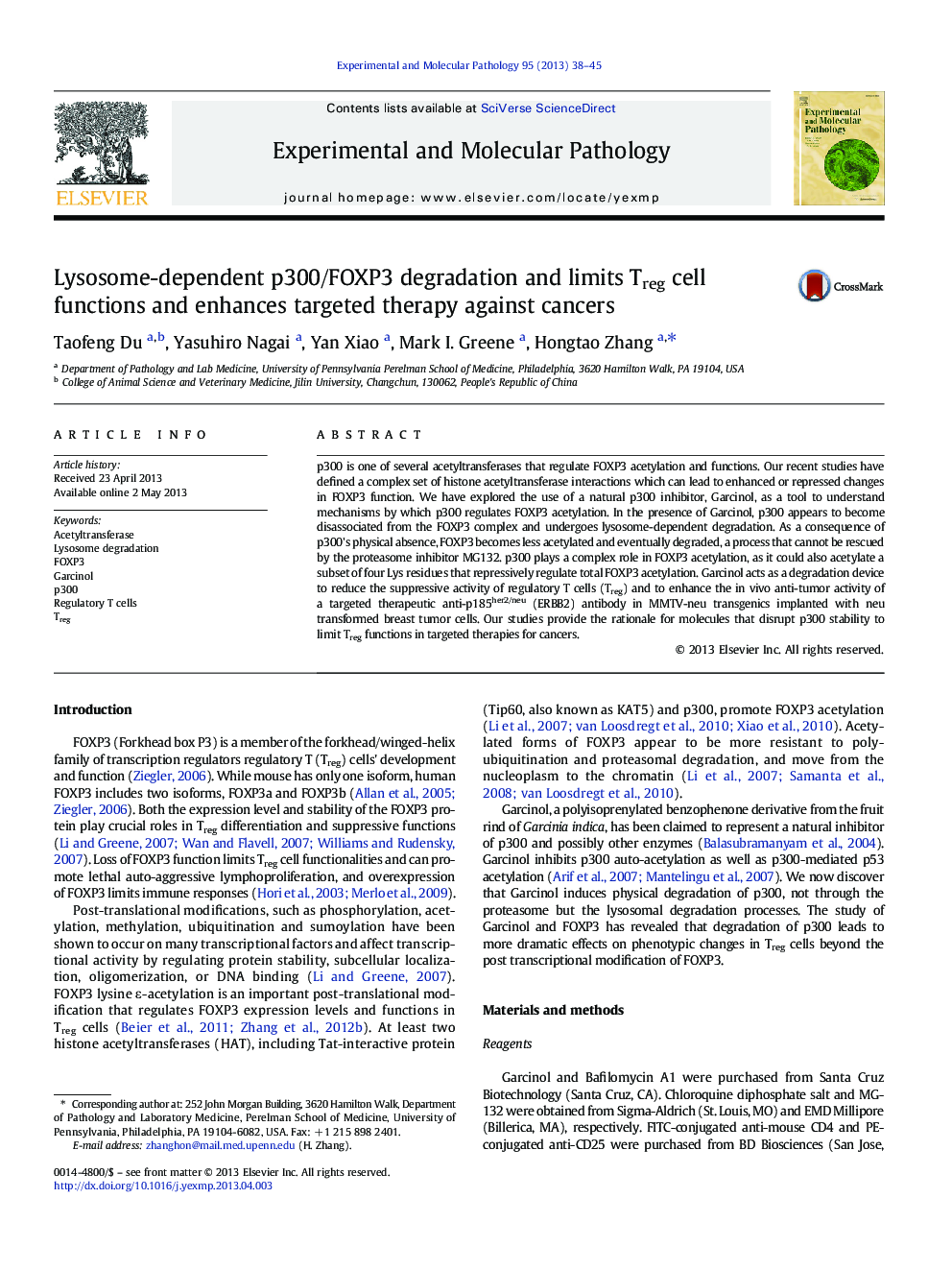| کد مقاله | کد نشریه | سال انتشار | مقاله انگلیسی | نسخه تمام متن |
|---|---|---|---|---|
| 2775320 | 1152321 | 2013 | 8 صفحه PDF | دانلود رایگان |

• The acetyltransferase inhibitor Garcinol induces p300 and TIP60 degradation.
• Acetylation and stability of FOXP3 is affected by Garcinol.
• Garcinol reduces activity of Treg cells and enhance targeted therapy against HER2.
p300 is one of several acetyltransferases that regulate FOXP3 acetylation and functions. Our recent studies have defined a complex set of histone acetyltransferase interactions which can lead to enhanced or repressed changes in FOXP3 function. We have explored the use of a natural p300 inhibitor, Garcinol, as a tool to understand mechanisms by which p300 regulates FOXP3 acetylation. In the presence of Garcinol, p300 appears to become disassociated from the FOXP3 complex and undergoes lysosome-dependent degradation. As a consequence of p300's physical absence, FOXP3 becomes less acetylated and eventually degraded, a process that cannot be rescued by the proteasome inhibitor MG132. p300 plays a complex role in FOXP3 acetylation, as it could also acetylate a subset of four Lys residues that repressively regulate total FOXP3 acetylation. Garcinol acts as a degradation device to reduce the suppressive activity of regulatory T cells (Treg) and to enhance the in vivo anti-tumor activity of a targeted therapeutic anti-p185her2/neu (ERBB2) antibody in MMTV-neu transgenics implanted with neu transformed breast tumor cells. Our studies provide the rationale for molecules that disrupt p300 stability to limit Treg functions in targeted therapies for cancers.
Journal: Experimental and Molecular Pathology - Volume 95, Issue 1, August 2013, Pages 38–45